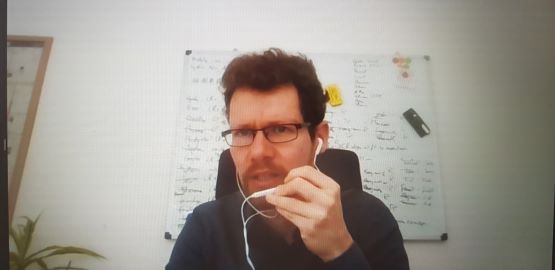A new GLO Discussion Paper highlights social identity as an important determinant of STEM-related education with potential long-term implications for the economic welfare of disadvantaged groups.
GLO Discussion Paper No. 900, 2021
Social Identity and STEM Choice: Evidence from Higher Secondary Schooling in India – Download PDF
by Kumar, Anand & Sahoo, Soham
GLO Fellow Soham Sahoo
Author Abstract:
This paper investigates the role of social identity, namely gender and caste of individuals, in stream choice at the higher secondary level of schooling in India. We analyze the choice of science stream that is a crucial determinant of subsequent science, technology, engineering, and mathematics (STEM) related education and labour market outcomes. Using three rounds of nationally representative surveys between 2007 and 2018, we estimate regression models including household characteristics and fixed effects to control for region-specific unobserved heterogeneity. We find that females and individuals belonging to historically disadvantaged social groups (castes) are significantly less likely to study science. On average, female students enrolled in higher secondary education have 9 percentage points lower probability than male students to study science during the period considered for the analysis. For students belonging to the socially disadvantaged groups – Scheduled Tribes (ST), Scheduled Caste (SC), and Other Backward Classes (OBC), the likelihood of studying science is significantly lower by 6.9, 4.4, and 2.7 percentage points, respectively, than students from the less-disadvantaged groups. Using decomposition analysis, we show that the differences in the observable characteristics such as economic affluence and household head’s education significantly explain some portion of the caste-based gaps, but they do not explain the gender gap that persists even in an intra-household comparison. We also test for the intersectionality of the overlapping identities of gender and caste in this context. We find evidence of cumulative disadvantages for females of SC and OBC groups, but lower gender disparity among ST students indicating the presence of intersectionality for this group. Thus, our paper highlights social identity as an important determinant of STEM-related education that may have long-term implications for the economic welfare of disadvantaged groups.

GLO Discussion Papers are research and policy papers of the GLO Network which are widely circulated to encourage discussion. Provided in cooperation with EconStor, a service of the ZBW – Leibniz Information Centre for Economics, GLO Discussion Papers are among others listed in RePEc (see IDEAS, EconPapers). Complete list of all GLO DPs – downloadable for free.
The Global Labor Organization (GLO) is an independent, non-partisan and non-governmental organization that functions as an international network and virtual platform to stimulate global research, debate and collaboration.
Ends;











